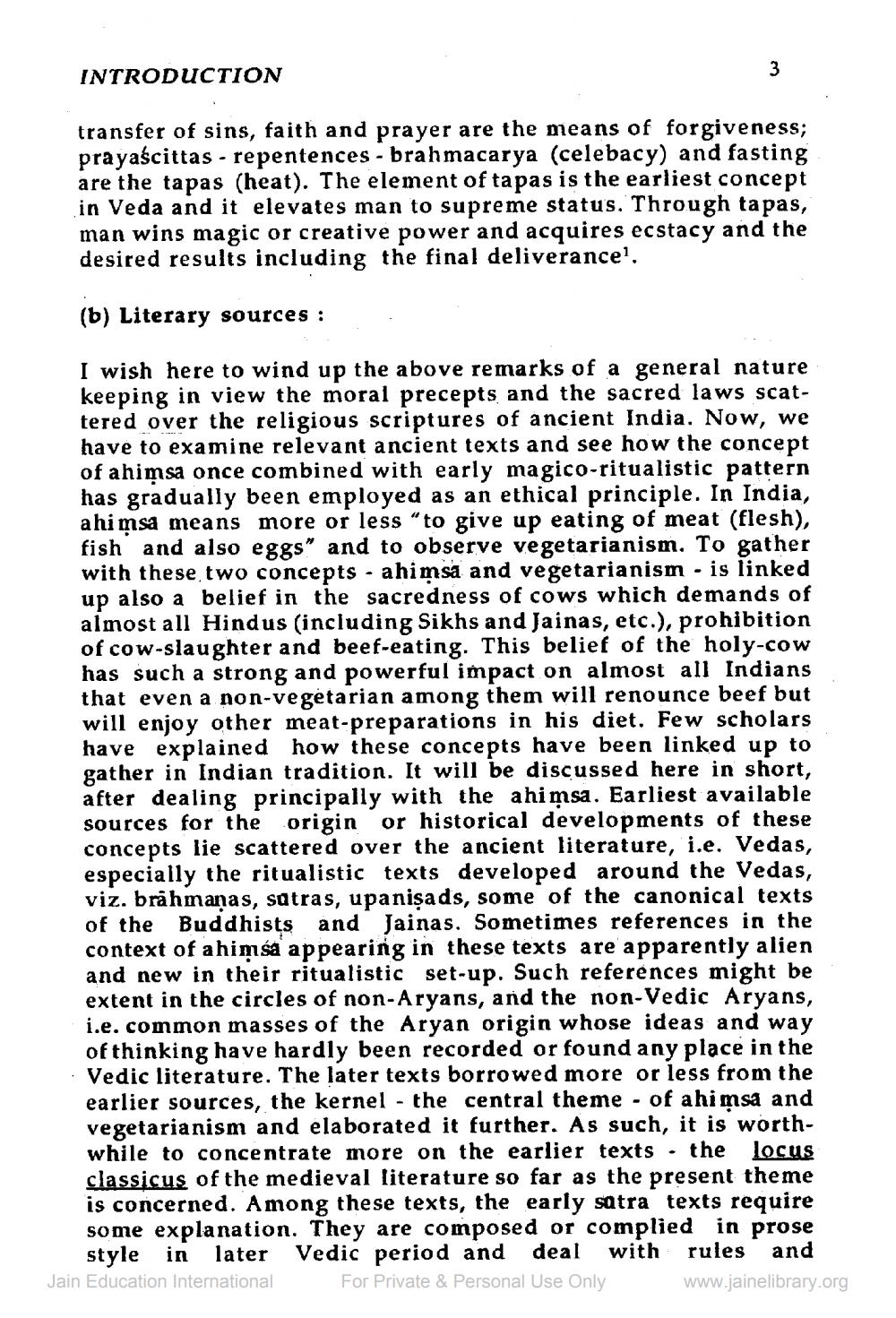________________
INTRODUCTION
transfer of sins, faith and prayer are the means of forgiveness; prayaścittas - repentences - brahmacarya (celebacy) and fasting are the tapas (heat). The element of tapas is the earliest concept in Veda and it elevates man to supreme status. Through tapas, man wins magic or creative power and acquires ecstacy and the desired results including the final deliverance1.
3
(b) Literary sources:
·
I wish here to wind up the above remarks of a general nature keeping in view the moral precepts and the sacred laws scattered over the religious scriptures of ancient India. Now, we have to examine relevant ancient texts and see how the concept of ahimsa once combined with early magico-ritualistic pattern has gradually been employed as an ethical principle. In India, ahimsa means more or less "to give up eating of meat (flesh), fish and also eggs" and to observe vegetarianism. To gather with these two concepts ahimsa and vegetarianism is linked up also a belief in the sacredness of cows which demands of almost all Hindus (including Sikhs and Jainas, etc.), prohibition of cow-slaughter and beef-eating. This belief of the holy-cow has such a strong and powerful impact on almost all Indians that even a non-vegetarian among them will renounce beef but will enjoy other meat-preparations in his diet. Few scholars have explained how these concepts have been linked up to gather in Indian tradition. It will be discussed here in short, after dealing principally with the ahimsa. Earliest available sources for the origin or historical developments of these concepts lie scattered over the ancient literature, i.e. Vedas, especially the ritualistic texts developed around the Vedas, viz. brahmanas, sutras, upaniṣads, some of the canonical texts of the Buddhists and Jainas. Sometimes references in the context of ahimsa appearing in these texts are apparently alien and new in their ritualistic set-up. Such references might be extent in the circles of non-Aryans, and the non-Vedic Aryans, i.e. common masses of the Aryan origin whose ideas and way of thinking have hardly been recorded or found any place in the Vedic literature. The later texts borrowed more or less from the earlier sources, the kernel the central theme of ahimsa and vegetarianism and elaborated it further. As such, it is worthwhile to concentrate more on the earlier texts the locus classicus of the medieval literature so far as the present theme is concerned. Among these texts, the early satra texts require some explanation. They are composed or complied in prose style in later Vedic period and deal with rules and www.jainelibrary.org
Jain Education International
For Private & Personal Use Only
-
.




